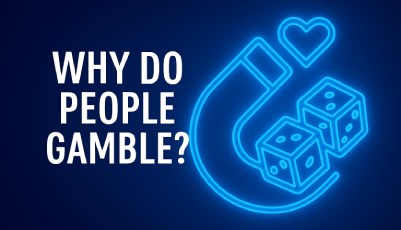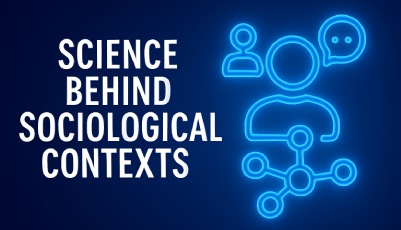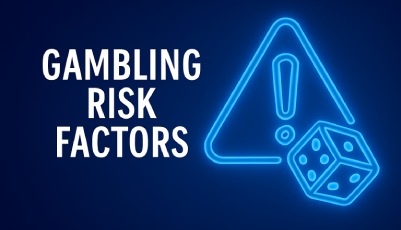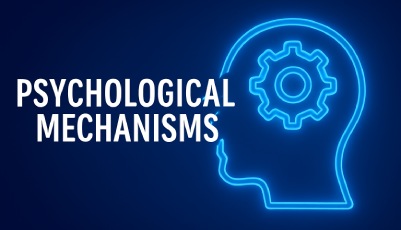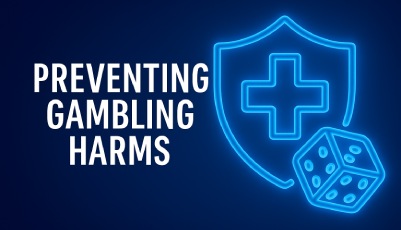Explaining Cognitive Distortions and Gambling Fallacies
Studies have shown that some gamblers have biased or irrational thinking patterns that push them to believe that they have more control over the outcomes of their wagers than they actually do. According to findings by Phua et al. (2022), gamblers who have such thought patterns are more likely to develop problem gambling as they may not be aware of the extent of their gambling frequency as well as the consequences of their continued playing. For example, a gambler may believe that by wearing a lucky charm, they can influence the results in their favor.
Gambling fallacies fall under cognitive distortions. In this case, gamblers misunderstand how probability and randomness work in wagers, and they make decisions that do not align with the actual factors that influence gaming outcomes (Wu et al., 2018). For example, a gambler who is on a winning streak may think that they have a ‘hot hand’ and this may push them to invest more time or money on the wagers, thinking that they are on a lucky streak and can maintain it.
“Cognitive distortions in gambling refer to irrational thoughts and beliefs about one’s capacity to predict the outcome of a wager and diminish the role of random chance.” Phua, Pyun, & Leng (2022) – Journal of Gambling Issues
The Most Common Cognitive Distortions
By carefully reviewing studies on cognitive distortions that had been published since 2010, we were able to derive the following common themes:
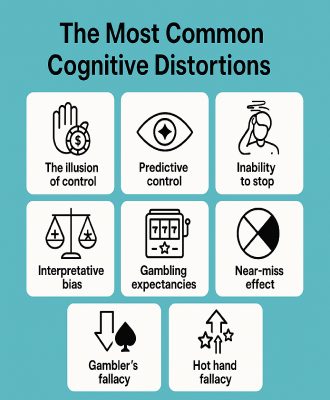
- The illusion of control. Some gamblers believe that they have the power to influence the outcomes of their wagers, be it by skills, rituals, or the choices they make. According to Fortune & Goodie (2012), such gamblers feel confident to keep playing and are likely to make risky decisions.
- Predictive control. While most gambling outcomes are random, some gamblers believe that they can predict what will happen if they look for patterns in the previous outcomes or if their intuition makes them believe that they have inner knowledge of the outcomes. As Nigro et al. (2021) explain, such gamblers are likely to keep playing as they think that they can foretell the future.
- Inability to stop. Many gamblers are able to place wagers and walk away regardless of whether they win or lose. But some gamblers suffer from a compulsion that pushes them to place wagers, either due to emotional reasons or distorted beliefs about what will or won’t happen if they miss out on the chance to wager. Unfortunately, people with this distortion are likely to suffer from distress if they do not play and are thus at risk of losing control in the process (Mathieu et al., 2020).
- Interpretative bias. In this case, gamblers tend to view their wins as proof that they have excellent strategies and skills. However, when they lose, they blame this on external influences or bad luck. As a result of this, they start thinking that they are competent enough to defy the odds, and this drives them to keep playing. After all, as Nigro et al. (2021) put it, the losses are not their fault.
- Gambling expectancies. People gamble for different reasons. But when it comes to gambling expectancies, Nigro et al. (2021) explain that gamblers with such distortions believe that by gambling, they can experience relief from boredom, stress, and other negative emotional states. By continuously using gambling as a form of escape, these gamblers become more vulnerable to developing problem gambling habits.
- Near-miss effect. When some gamblers almost win, they see this as proof that they have what it takes to bag the actual win. Interestingly, findings by Wu et al. (2018) show that almost winning activates the reward systems in the brain, such that gamblers will feel the same elation they would feel if they won. As a result, they are more likely to keep playing as this emotional reward serves as motivation to keep going.
- Gambler’s fallacy. Some gamblers believe that if they are losing, they should keep playing as they will eventually get a win since it is due. Unfortunately, such thinking pushes them to invest more money and time in the wagers as they try to recoup what they have lost. But as Fortune & Goodie (2012) explain, this is not always possible.
- Hot hand fallacy. In contrast to the gambler’s fallacy, gamblers with this distortion think that they will keep winning because they have had a series of wins (Wu et al., 2018).
“Cognitive distortions have clear relevance for the treatment of PG: if pathological gamblers have fewer of the irrational beliefs that sustain disordered gambling, then they might reasonably be expected to have fewer gambling-related problems.” (Fortune & Goodie, 2012).
Case Study Examples
In a Nigro et al. (2021) study, which featured 255 regular gamblers, researchers found that participants who had interpretative bias or gambling expectancies were more likely to chase losses compared to those who did not have these biases. At the same time, a Wu et al. (2018) study, which featured 22 healthy controls alongside 22 people with internet gaming disorder, showed that the latter group was more affected by cognitive distortions, and this influenced their decisions to keep playing and make risky decisions.
Are Distortions Permanent?
The findings from these studies suggest that cognitive distortions not only affect decision-making but also risk-taking behaviors and reward perception among gamblers. There is thus a need for more gambling education programs that address these errors in thinking through therapies that enable gamblers to understand the actual role that they play in gambling outcomes.
FAQs
These are irrational thought patterns or beliefs that affect a gambler’s ability to make rational decisions when placing wagers.
Not quite. While some gamblers suffer from these distorted beliefs, others do not have these thought patterns.
Yes. Many gambling education programs have successfully incorporated behavioral therapies to address these distortions.
References
- Fortune, E. E., & Goodie, A. S. (2012). Cognitive distortions as a component and treatment focus of pathological gambling: A review. Psychology of Addictive Behaviors, 26(2), 298–310. https://psychology.uga.edu/sites/default/files/Fortune%20%26%20Goodie%202012%20PAB.pdf
- Mathieu, S., Barrault, S., Brunault, P., & Varescon, I. (2020). The role of gambling type on gambling motives, cognitive distortions, and gambling severity. PLOS ONE, 15(10): e0238978. https://journals.plos.org/plosone/article?id=10.1371/journal.pone.0238978
- Nigro, G., Cosenza, M., Ciccarelli, M., & D’Olimpio, F. (2021). The role of cognitive distortions related to gambling in the development of gambling problems. GREO Evidence Centre. https://www.greo.ca/Modules/EvidenceCentre/files/Nigro%20et%20al%20%282021%29_Role%20of%20cognitive%20distortions%20related%20to%20gambling_final.pdf
- Phua, Y. X. P., Pyun, D. Y., & Leng, H. K. (2022). Cognitive Distortions and Problem Gambling in Sports Betting. Journal of Gambling Issues. https://cdspress.ca/wp-content/uploads/2022/06/JGI-Jun-21-RES-420.R2-Phua-Cognitive-FINAL_JUNE20.pdf
- Wu, Y., Sescousse, G., Yu, H., Clark, L., & Li, H. (2018). Cognitive distortions and gambling near-misses in Internet Gaming Disorder: A preliminary study. PLOS ONE. https://journals.plos.org/plosone/article?id=10.1371/journal.pone.0191110
